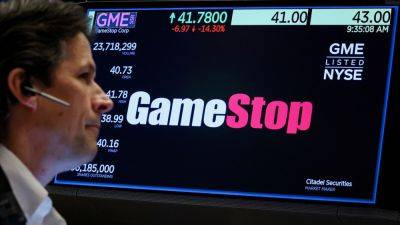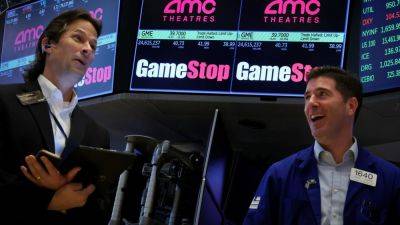GameStop short sellers lost almost $1 billion in Monday's monster rally
The jaw-dropping rally in GameStop on Monday caused losses approaching $1billion for short sellers, according to data from S3 Partners.
With GameStop soaring 74%, short-selling hedge funds suffered a mark-to-market loss of $838 million in the brick-and-mortar video game retailer, data firm S3 Partners said.
"Expect short covering in this stock as it already had a 100/100 squeeze score prior to today's trading," said Ihor Dusaniwsky, S3 managing director of predictive analytics.
The sudden advance in the stock was seemingly triggered by "Roaring Kitty," who once encouraged an army of day traders to pile into the gaming stock in 2021, an episode that made Wall Street history. The internet persona, whose legal name is Keith Gill, posted a picture on X of a video gamer leaning forward on their chair as if to indicate he's taking the game seriously, making his first post on the platform since 2021.
The "meme stock" frenzy involved individual investors taking aim at short sellers and hedge funds who were pessimistic about the outlook for GameStop and other companies, forcing them to cover their short positions and drive up the price of the target stocks.
Currently, the short position in GameStop shares amounts to more than 24% of all its shares that are freely available to trade, also known as the float, according to FactSet.
Including Monday's losses, short sellers in GameStop have lost $1.24 billion in May alone, according to S3.
"Squeeze related buy-to-covers will be helping to push GME's stock price higher - but also expect new short sellers to jump into this trade as GME stock prices around or above the $30 level will be attractive entry points for new short selling," Dusaniwsky said.
Short selling is a strategy in which







